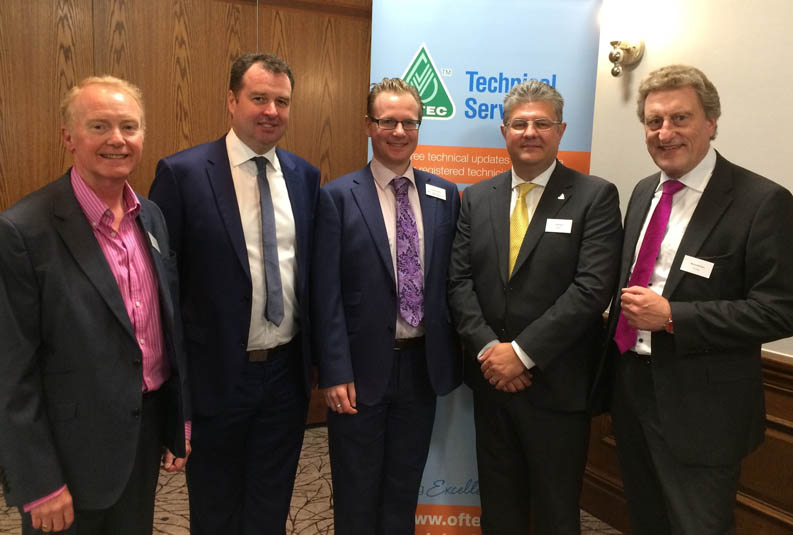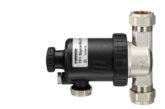
OFTEC has hosted its annual conference and this year it carried the theme of the future pathway for liquid fuel heating.
The trade association shared the industry’s progress towards developing a low carbon alternative to kerosene, in support of government’s decarbonisation plans.
During the event, OFTEC CEO Paul Rose, updated members and guests on the key steps achieved since officially launching OFTEC’s two stage strategy to decarbonise off-grid homes 12 months ago.
OFTEC’s plans will focus on an incentivised programme to upgrade the 400,000 old, inefficient oil boilers still in use across England and Wales, which will provide immediate carbon reduction wins of up to 20% per household and pave the way for a roll out of a low carbon liquid fuel as soon as it becomes available.
Over the last year, OFTEC is also said to have carried out extensive lobbying activity to explain the practical difficulties and potential cost to rural consumers of government proposals outlined in the Clean Growth Strategy to phase out high carbon fossil fuel heating, whilst emphasising the viability of low carbon liquid fuels as a practical and cost-effective solution for off-grid homes.
From these discussions, a Department of Business, Energy and Industrial Strategy (BEIS) and an OFTEC working group has been established to co-ordinate discussion and action on the future of the off-grid heating sector, with the first meeting held on 3 May in London.
OFTEC, in partnership with leading manufacturers, has also begun performance tests on various low carbon liquid fuel blends and a 100% biofuel, with is reported as having highly positive results.
Paul commented: “The climate change challenge is one we all need to work towards addressing. OFTEC fully supports government’s decarbonisation ambitions, although how these are achieved for rural households must be reviewed. Over the past year OFTEC has been working hard to progress a low carbon liquid fuel solution which offers a realistic, practical alternative to the current options on the table for off-grid homes which are not fit for purpose.
“Now is the time for our industry to unite, step up and act collectively to meet the significant opportunity decarbonisation brings. This means everyone from installers and manufacturers to fuel suppliers and refiners playing their part. Much progress has been made to date, and against an undeniably challenging backdrop, but we need to keep this positive momentum going and deliver a futureproof solution that works for consumers and government alike.”
OFTEC was also joined at the conference by guest speaker Richard Vianello, Renewable Heat Incentive & Heat in Buildings Deputy Director at BEIS. Richard provided a summary of current government thinking on heat policy, including the recent ‘call for evidence’ on the Future Framework for Heat in Buildings, to which OFTEC submitted a detailed response.
Dr Ernst-Moritz Bellingen, Energy Policy Director of the German Institute for Heating and Oil Technology (IWO) also provided an overview of the positive developments in low carbon liquid fuel production.
Guests then heard from Andrew Robertson, co-founder of Clean Energy Consultancy who was involved in OFTEC’s biofuel project (2008-2011) which delivered a 30% renewable liquid fuel called B30K. Andrew talked through the customer journey when opting for renewable heating solutions such as heat pumps and biomass, highlighting the potential barriers to take up in a retrofit situation whilst emphasising the benefits of switching to a low carbon liquid fuel.
OFTEC Chair, Niall Faye of Grant Engineering, concluded: “The journey to provide decarbonisation solutions continues. Heat pumps have been promoted by many as the answer to low carbon heating for off-grid homes. However, the poor thermal efficiency of rural homes and the widely evidenced failure of the domestic Renewable Heat Incentive (RHI) highlights the practical difficulties and prohibitive cost of retrofitting these technologies.
“More cost-effective options must be found and this means a crucial role for low carbon liquid fuels going forward. By drawing together the strengths of our innovative industry, I am confident we will be able to produce an alternative fuel to power off-grid boilers well into the future.”













